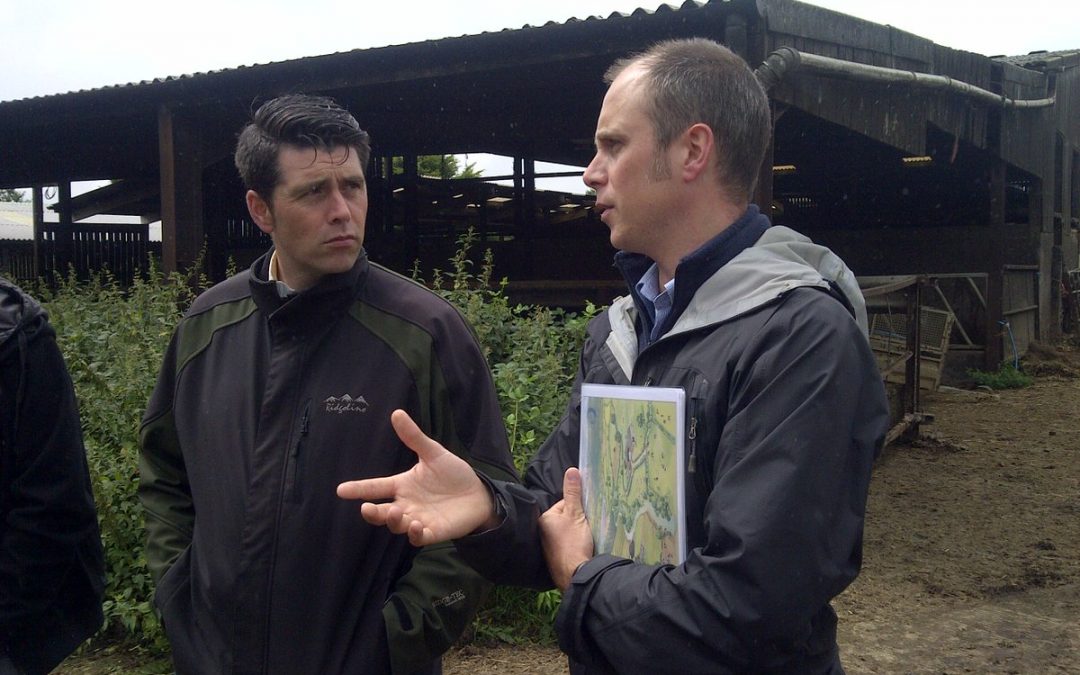Our CEO, Dr Laurence Couldrick, gives his thoughts on a meeting with Scott Mann, MP for North Cornwall, WRT senior farm advisor Ross Cherrington, one of his farmers on the Tamar, Monica Reed, South West Water’s Head of Sustainability and SWW Upstream Thinking Manager, David Smith, to talk about farming and the role farmers play in drinking water management.
For the last 20 years the Westcountry Rivers Trust’s farm advisors have been working with thousands of farmers to improve land management, impacting on both the river and farmers’ wallets. The advice they give is always in line with the farm business and works to give advice and infrastructure to improve the timeliness of their operations so they don’t lose nutrients, pesticides or soil.
This sounds eminently sensible, and it is. The difficulty is that farming, weather and finance all get in the way of sense. The state of farming in the West Country means farmers are often using outdated infrastructure and equipment and this means pushing the land beyond its capability to recover. Couple that with changing rainfall patterns means soils, nutrients and pesticides cause severe degradation to the very soil their business depends on, as well as the downstream environment. Compaction of soils means their key asset is literally being washed away. Valuing them in the same way as one values the benefit of a functioning tractor would highlight their importance but this is often overlooked and a recent report highlighted 38% of the soils in the South West are degraded*.
No farmer destroys their key asset on purpose but they often suffer from not seeing the slow incremental changes over years or, more often than not, acknowledging the problem but not being able to borrow the finance to invest in infrastructure. Certainly for farmers in their late 70’s trying to get a 30-year loan is nigh-on impossible and that’s before you take into account the parlous state of several farming sectors and the disinclination to loan to even the spritelier farmers. With the help of South West Water through the Upstream Thinking program we are able to halve the payback period for farm investment. This gives South West Water the water quality improvements they want to see as well as making the farm more profitable by making efficient use of their resources.
And from our side we bring our rivers back to life. Whilst our work on the Tamar still has a way to go, we are seeing fish returning to areas where they were once devoid and this shows that the system is slowly recovering from this chronic diffuse situation where pollutants are coming from across our catchments.
This message has certainly got through to Scott Mann as well as the need for both the ‘carrot’ of incentivisation working alongside the ‘stick’ of simplified, but enforced, regulation. If we can navigate our way through the EU referendum and move forward as one as an environmental movement, there is no reason we can’t bring all our rivers to life.
* Palmer, R. C. & Smith, R. P. (2013). Soil structural degradation in SW England and its impact on surface-water runoff generation. Soil Use and Management 29(4): 567- 575. DOI:10 – http://eureferendum.com/documents/sum12068.pdf
Tweet Share
